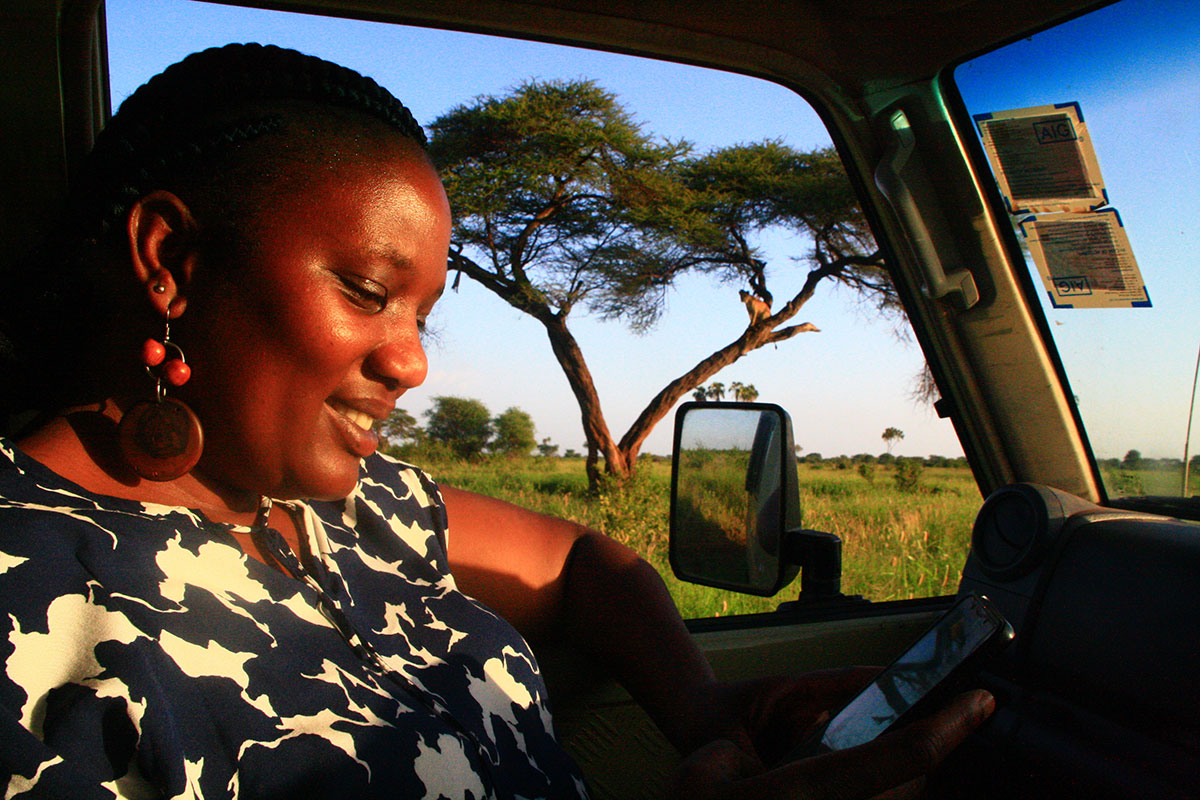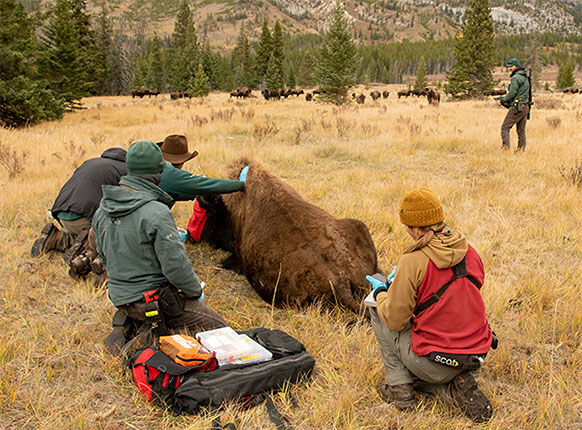Anniversary Highlight: An Opportunity to Safeguard the African Lion: Caroline Ng’weno
Since its inception in 2012, the BI has been in the business of supporting world-class biodiversity science, especially that being done by UW’s most talented students. As our 10th anniversary nears, we’re taking a look at some of those students today - where they’ve gone and what they have achieved.
In 2013, Caroline Ng’weno was a PhD student in the Department of Zoology and Physiology, and already becoming a rock-star for conservation in her native Kenya. Her Kenya-based research, partially funded by the BI for her proposal Spatial Dynamics of Predator-Prey Interactions and Livestock Production in a Semi-Arid Rangeland, was “at once conceptually interesting and relevant to the conservation of lions and wild ungulates within Laikipia,” according to her advisor Dr. Jacob Goheen.
In addition to her research, Caroline spearheaded Earthwatch expeditions, and established an outreach program for Samburu women interested in livestock production alongside conservation.
Today, Dr. Ng’weno is Wildlife Ecologist/Head of Pride of Meru with the Born Free Foundation.
I have been working on lion research and conservation for over a decade, starting as a field research assistant at Ol Pejeta conservancy in 2008. Later joining University of Wyoming in 2011 to pursue a doctorate in Zoology. In 2013, I was awarded the BI research grant which immensely supported my Ph.D research and significant step in my career in conservation.
My passion is to understand how effective large carnivore conservation can be achieved in modern-day Africa through championing human-wildlife co-existence. After graduating with a Ph.D. in Zoology it has been now 4 years after leaving UW. As UW alumni, I appreciate the wealth of knowledge and expertise gained through my time at UW. I am proud that this helped me acquire the versatility needed to reach my full potential as a researcher and experience the excitement and satisfaction of being at the forefront of this vastly growing field. I still have fond memories of Berry center and the joy of being a cow girl. This spirit engenders a sense of pride in being a student in Laramie.

Dr. Caroline Ng’weno, stops her vehicle to document a lion sighting in the Meru Conservation area, Kenya
Currently, I am working as the Head of Pride of Meru Programme at Born Free Foundation, in Meru Conservation area, Kenya since 2019. Meru National Park is Born Free’s heartland, and is beautiful, a vast “complete wilderness; brilliant on a magnificent scale”. It is also home to other big cats like leopard and cheetah, as well numerous other stunning mammals, and some 400 species of bird. This has accorded me the opportunity to further my understanding in lion ecology and demographics in a landscape with one of the highest levels of human-wildlife interactions.
As a Wildlife Ecologist, at Born Free, I am privileged to have the opportunity to be part of a team that protects the most iconic African wildlife species. Through my current role, I strive to understand how species interactions can inform wildlife conservation and management. The aim is to protect and grow the lion population, while preserving the habitat they roam in. Our programme initiatives primarily work to reduce human-wildlife conflict by promoting co-existence between people and lions. We’re also collaborating with communities to encourage tolerance; by finding solutions to reduce conflict. We rely on an array of solutions, mitigating threats including habitat loss, and, most significantly, human-lion conflict — the leading cause of lion decline in numerous places. Most importantly, we have learned that there is no one best solution to human-carnivore conflict; instead, effective mitigation requires a holistic set of interventions that often operate synergistically and must involve communities.
Hongera! to the institute on celebrating its 10th anniversary
Share This Post

Social Media
Latest News



Archives
- All
- February 2026
- January 2026
- December 2025
- October 2025
- August 2025
- July 2025
- June 2025
- May 2025
- April 2025
- March 2025
- February 2025
- January 2025
- November 2024
- October 2024
- September 2024
- August 2024
- July 2024
- June 2024
- May 2024
- April 2024
- March 2024
- February 2024
- January 2024
- December 2023
- November 2023
- August 2023
- July 2023
- April 2023
- September 2022
- August 2022
- July 2022
- June 2022
- May 2022
- April 2022
- March 2022
- February 2022
- January 2022
- December 2021
- November 2021
- October 2021
- September 2021
- August 2021
- May 2021
- April 2021
- March 2021
- October 2020
- August 2020
- July 2020
- January 2020
- March 2019

